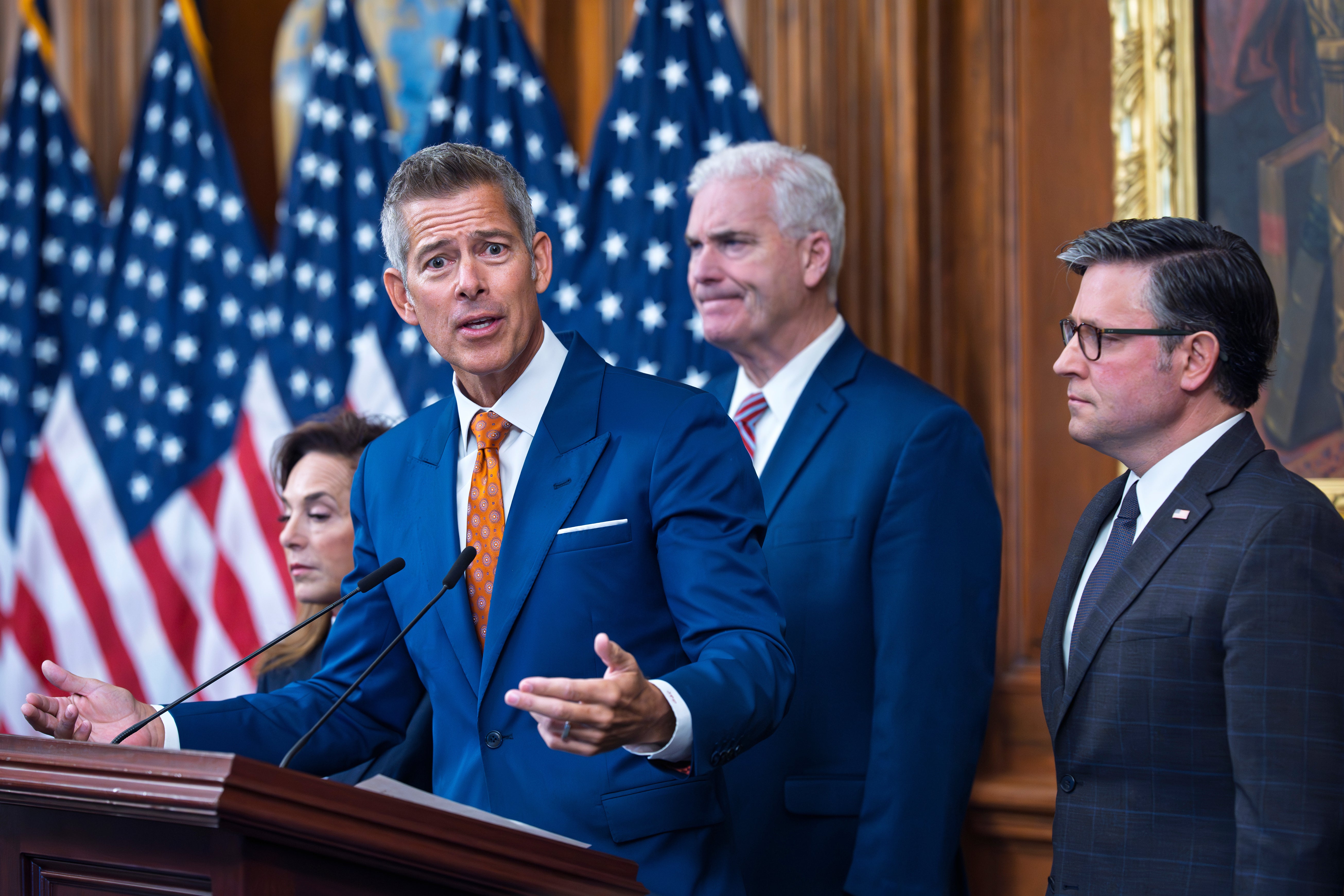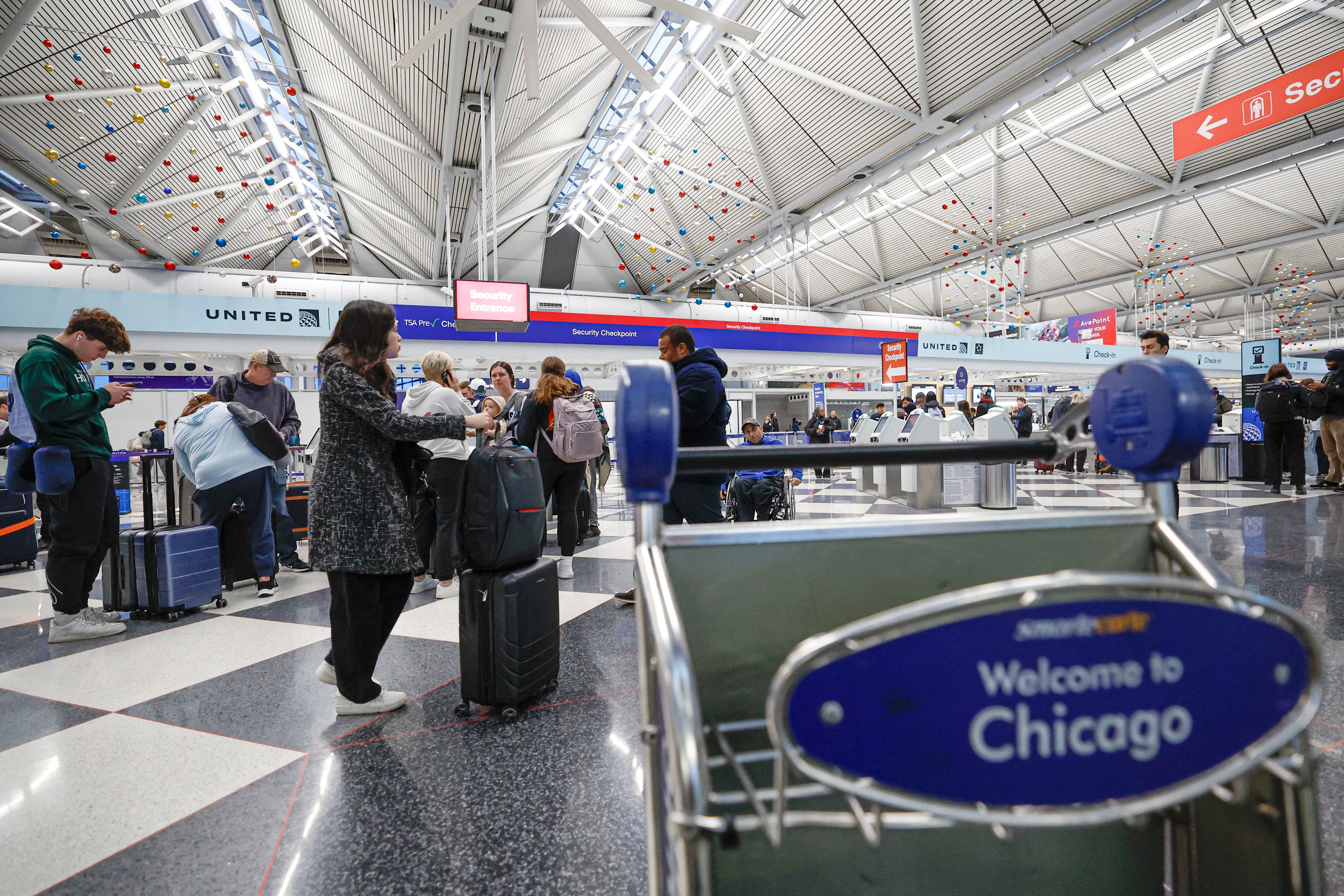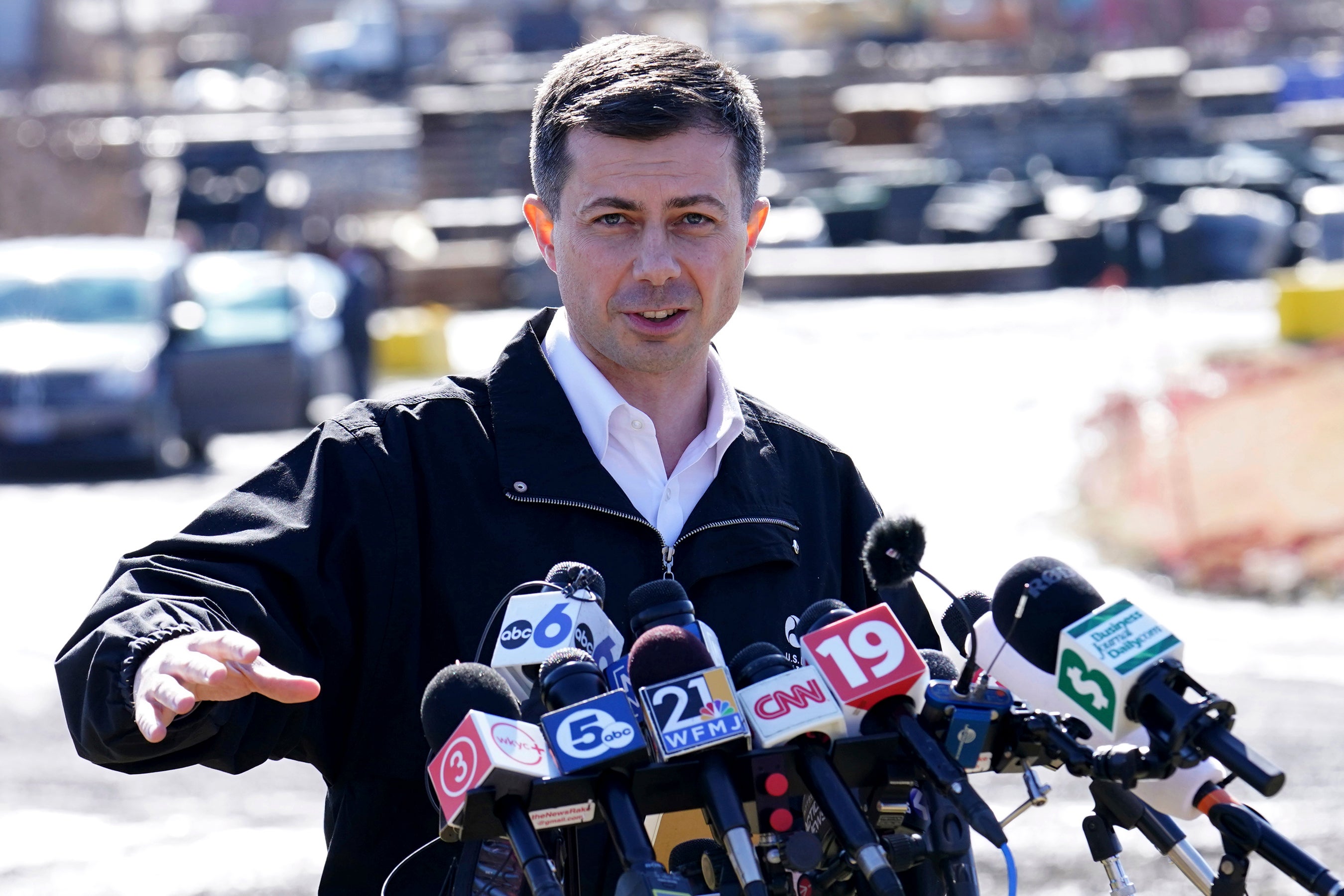Sean Duffy, the U.S. Secretary of Transportation, has confirmed air traffic controllers are not being paid because of the government shutdown.
The budget crisis has plunged public services into turmoil, with airports forced to cancel or delay thousands of flights because they cannot afford to pay staff.
That means flight schedules have been thrown into chaos, leading travelers to desperately work out what their rights are before heading to the airport.
Duffy has warned that the problem could continue to drag on and told Fox and Friends things could get worse before they get better.

"The first day is hard, but the second day is even harder than that, he said. “And the third day. Because they have gas, they have childcare costs.”
Controllers, TSA officers and air safety personnel are required to work without pay during a shutdown, forcing many to take “second jobs,” according to Duffy.
The shutdown will continue until Congress agrees on a spending plan, although Republicans and Democrats remain at loggerheads over GOP plans to axe Affordable Care Act subsidies and to slash Medicaid.
Is it safe to fly during a government shutdown?
The Transportation Secretary would not answer questions on Fox & Friends about how safe it is to fly amid the shutdown.
“I need my controllers focused on the airspace, not on the finances at home,” he simply said.
However, earlier this month, Henry Harteveldt, the president of the Atmosphere Research Group, spoke to CBS News to reassure people that flying remains safe during a government shutdown.
“There is no slacking,” he said. “FAA safety standards don't go on hiatus just because the government is shut down."
Some 13,000 air traffic controllers and about 50,000 Transportation Security Administration officers must still work even though they are not being paid during the shutdown.
Should travelers expect delays because of the shutdown?
In order to keep up the high standards of flight safety required by law, airports limit the number of planes that can take off each day.
On Sunday, the 26th day of the shutdown, there more than 8,000 flights cancelled across the country due to major staff shortages. That was up from 5,300 on Saturday.
Southwest Airlines has 2,000 flights delayed Sunday, while American Airlines had nearly 1,200, according to FlightAware. United Airlines had a further 739 flights delayed and Delta Air Lines 610 flights.
Duffy told reporters that an average of 5 percent of flights are being delayed per day. However, this number has risen to as high as 53 per cent.
Multiple airports have been affected in major cities across the country since the shutdown began, including New York, Los Angeles, Dallas, Chicago and Atlanta among others. In the last week there have been reported delays of 105 minutes at Newark Liberty International and 86 minutes at JFK.
Disruption has continued to cause problems on Tuesday, with a statement from the Federal Aviation Administration suggesting 7,000 flights have been delayed across America.
Airports particularly affected include the aforementioned Newark airport, as well as Austin-Bergstrom International Airport and Dallas-Fort Worth International Airport in Texas.
While the shutdown drags on, travelers can expect delays to continue. Since the crisis has unfolded during fall, delays have been made worse by extreme weather conditions.

What should travelers do to minimize the impact of the delays?
Melanie Fish, a travel expert at Expedia, told The Washington Post that people should arrive at the airport much earlier than normal.
Since there could be staffing shortages at TSA, queues could take much longer than normal.
Another expert, John Rose from Altour, said travelers should book flights with longer connection times in case their first plane is delayed.
“I like people to prepare for these things because it’s going to get a lot worse if the shutdown continues,” he told The Post.
Can you get a refund if your flight is delayed because of the shutdown?

If your travel plans are disrupted, rules introduced by the Biden-Harris administration require airlines to give you a full refund if the delay exceeds a certain duration.
Refunds become available after delays which stretch over three hours for domestic flights and over six hours on international flights.
At the time, U.S. Transportation Secretary Pete Buttigieg said that “passengers deserve to get their money back when an airline owes them.”
All of those laws remain in effect even during a government shutdown.
Passengers need to make the refund request themselves by contacting the airline online or on its customer helpline. During times of mass cancellations, this could make the process take much longer than normal.
While speaking to officials who may be in a rush to get to another customer, it is important to be clear with the company about whether you want a full refund or whether you want your tickets to be transferred to another flight.







